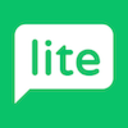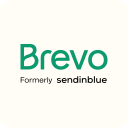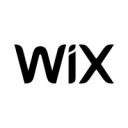Constant Contact vs Mailchimp: Which email marketing tool is best?
- 01Constant Contact vs Mailchimp: overview
- 02What's the difference between Constant Contact and Mailchimp?
- 03Constant Contact pros and cons
- 04Mailchimp pros and cons
- 05Constant Contact compared to Mailchimp
- 06Mailchimp compared to Constant Contact
- 07Features comparison
- 08Constant Contact vs Mailchimp: Which is the best for your business?
- 09Promotions on Email Marketing software
- 10Alternatives to Constant Contact & Mailchimp
Access up to $246 savings on Constant Contact & $1,870 on Mailchimp
Access up to $246 savings on Constant Contact & $1,870 on Mailchimp
Staying in contact with your target audience is key to the success of your business. Your customers need to be aware of the products and/or services you offer so they can make the right purchasing decision. However, keeping in touch with your users across different marketing channels and providing that perfectly personalized customer experience can be tricky.
It is then that you may find the need for an email marketing and automation software to attract your potential customers and stay ahead of your competitors.
There are two very popular tools when it comes to online marketing SaaS solutions: Constant Contact and Mailchimp. Although you may have heard of these tools, you may not be very familiar with what these two software tools do. So, which tool is the best for you and your startup?
In this article, we will compare the different features, pricing and advantages of Constant Contact versus Mailchimp so you have all the necessary information to make the right decision and start using the ideal marketing platform for your business.
Constant Contact vs Mailchimp: overview
Constant Contact and Mailchimp are both well-known for their performance and extensive services in the world of email marketing and automation. With a plethora of features offered by both platforms, it can be challenging to determine which one is superior in the Constant Contact vs Mailchimp showdown.
To assist you in selecting the ideal software solution for your business requirements, we have prepared a comparison table outlining the key features of each email marketing platform. Each criterion is rated using a star system and accompanied by a commentary, making it convenient for you to evaluate the table below.
What's the difference between Constant Contact and Mailchimp?

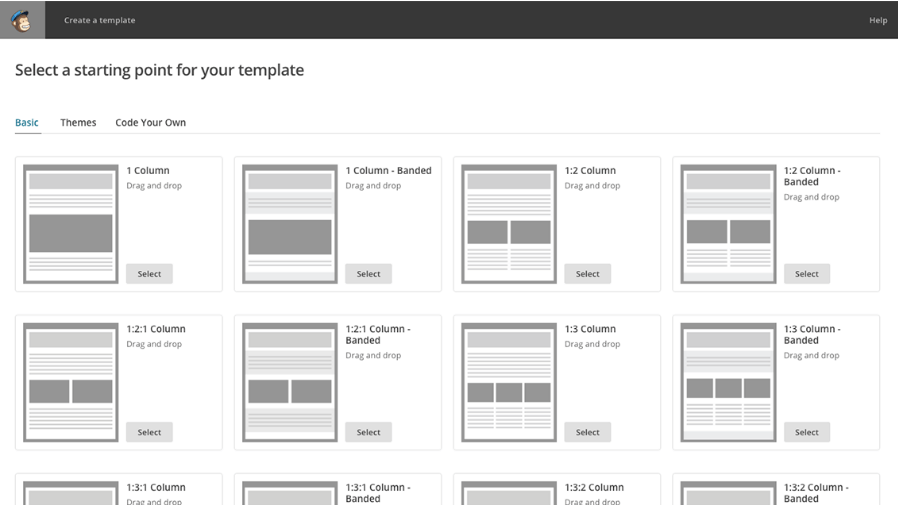
The main difference between Mailchimp and Constant Contact lies in their user interfaces and overall user experience. Mailchimp offers a more robust and feature-rich platform, which can be slightly more complex, especially for those with limited experience. Constant Contact, on the other hand, is known for its user-friendly and intuitive interface, making it easy for beginners to navigate.
When it comes to features, both Mailchimp and Constant Contact provide the usual functionalities we would expect from an email marketing tool. Indeed, Mailchimp provides a wider range of advanced features and customization options.
For example, the Automation feature.
Mailchimp offers a robust automation platform with a visual builder, allowing users to create complex and customized workflow based on triggers, actions, and conditions. By leveraging these tools, you can create sophisticated automation sequences that enhance your customer engagement, increase conversions, and streamline your email marketing efforts.
With this feature, you can send targeted emails to customers who have abandoned their shopping carts, personalize emails based on subscriber data, like name and location, and monitor how your automated campaigns perform.
Constant Contact also offers a range of Automation features but they are more focused on event management and offer specific features like birthday and anniversary emails.
Another main difference between the two SaaS solutions is email design.
Mailchimp offers a wide selection of professionally designed templates that are highly customizable, allowing you to create visually appealing and on-brand emails. The software also provides a drag-and-drop editor and HTML customization options for advanced users.
Constant Contact, however, does not offer as extensive design options and flexibility, prioritizing more ease of use and streamlined communication.
Constant Contact pros and cons
What are the advantages of Constant Contact?
- A user-friendly and intuitive interface for users of all skill levels
- Robust email marketing features for effective customization, automation and segmentation
- Various third-party application integration capabilities for seamless data synchronization
- Detailed reporting and analytics to measure engagement
- Extensive customer support, including live chat, phone support and helpful resources
What are the disadvantages of Constant Contact?
- There is a lack of more advanced functionalities
- Constant Contact’s pricing can be a bit higher compared to some competitors, especially businesses with larger subscriber lists
- The customization options for email design are somewhat limited
- The platform may not be as flexible or scalable as required as the number of subscribers increases
Compare Constant Contact to other tools
Mailchimp pros and cons
What are the advantages of Mailchimp?
- A free plan with access to key features
- Pricing plans that cater to businesses of all sizes, from small startups to larger enterprises
- Reach your audience across different marketing channels, from social media to postcard campaigns
- Advanced segmentation to send highly targeted and personalized emails
- Creative tools and features to enhance email content, without extensive design skills required
What are the disadvantages of Mailchimp?
- The tool’s advanced features may have a steeper learning curve for less experienced users
- Somewhat limited level of customization available from the templates provided
- Free users do not have access to more robust customer support options
- Specific integrations or compatibility with certain systems may be limited as integrations
Compare Mailchimp to other tools
Constant Contact compared to Mailchimp
When comparing Constant Contact and Mailchimp, Constant contact stands out with its user-friendly interface and intuitive design. Constant Contact provides a streamlined and easy-to-navigate platform that allows you to quickly dive into your email marketing campaigns. In comparison, Mailchimp’s interface may be perceived as more complex, especially for beginners, as it offers a wide range of functionalities and options that may overwhelm some users.
Constant Contact’s focus on simplicity and ease of use makes it a preferred choice for those who value a straightforward and accessible marketing platform. While Constant Contact is often praised for its simplicity, Mailchimp appeals to users seeking more advanced features and customization options.
Is Constant Contact better than Mailchimp?
The question of whether Constant Contact is better than Mailchimp depends on your specific needs and preferences.
Both tools are popular email marketing platforms that offer a range of features and tools to help businesses create, manage, and automate their email marketing campaigns.
Constant Contact is known for its user-friendly interface and simplicity, making it a better choice for users with limited technical knowledge than Mailchimp. The software provides comprehensive features, while Mailchimp, on the other hand, is a more robust and feature-rich platform.
What is Constant Contact best used for?
Constant Contact is ideal for businesses that want to engage and stay connected with their audience through effective email marketing. It offers a range of features for small businesses, non-profit organizations, and larger enterprises, ensuring they have the tools to create successful email marketing campaigns and build stronger relationships with their subscribers.
Constant Contact ensures a seamless and straightforward experience when it comes to managing your emails campaigns and contact lists.
Can Constant Contact replace Mailchimp?
Constant Contact can potentially replace Mailchimp if your focus is on streamlined email marketing and effective customer communication.
However, while Constant Contact serves as a reliable email marketing platform, it may not fully replace Mailchimp in certain scenarios. Here are a few reasons why:
- Mailchimp offers a broader range of marketing tools beyond email, including social media management, landing page creation, and ad campaign management. This makes it a comprehensive solution if you are looking for a multi-channel marketing approach.
- Mailchimp provides more advanced automation capabilities and segmentation options so you can highly target and personalize your email campaigns.
- Mailchimp offers more flexibility when it comes to pricing plans, accommodating all types of businesses and scaling needs.
Is Constant Contact cheaper than Mailchimp?
Ultimately, Constant Contact is more expensive than Mailchimp. We compared Constant Contact’s and Mailchimp’s Standard plans, which are the middle-tier plans offered by both platforms. These plans offer a wide range of features necessary for effective marketing at great value.
Constant Contact’s Standard plan starts at $35 per month, while Mailchimp’s Standard plan starts at $20 per month. Both of these plans include up to 500 contacts in your campaign lists.
We can take a closer look at the features and limitations of these plans, there are some slight differences like:
- Constant Contact offers 3 user seats as part of the Standard plan, whereas Mailchimp offers 5.
- Constant Contact includes a one-time onboarding phone call as part of their customer service while Mailchimp only provides 24/7 email and chat support.
- Mailchimp provides you with an option to create dynamic and personalized content for your emails. Constant Contact does not include this feature in its Standard plan.
- Both Constant Contact and Mailchimp give you 6,000 monthly email sends.
When comparing Constant Contact and Mailchimp, it’s evident that both platforms offer comprehensive features as part of their pricing plans. While Mailchimp offers better pricing vis-a-vis contact numbers, the decision between these two software depends on your specific business needs and technical expertise.
Is there a better Email Marketing software than Constant Contact?
Constant Contact offers unique features and advantages for email marketing and automation. However, there are other software options available that may better suit specific business needs. When considering alternatives, it’s important to evaluate factors such as scalability, integration capabilities, user experience, customer support, and available features.
Notable alternatives to Constant Contact include Mailchimp (which is clear), ActiveCampaign, Brevo and GetResponse.
Of course, the choice of the best email automation software for your startup depends on your unique requirements and priorities. But, if you’re looking for a tool with comprehensive features and a user-friendly interface then Constant Contact is for you.
50% off for up to 1 year on the Core and Plus plans. on Constant Contact
Get 50% off for up to 1 year on the Core and Plus plans. on Constant Contact and up to $246 savings with Secret.
Mailchimp compared to Constant Contact
When comparing Mailchimp and Constant Contact, Mailchimp stands out with its extensive range of email marketing automation features. With pre-built templates, customizable sequences, and automated workflows, Mailchimp streamlines your email marketing efforts and allows for efficient execution of campaigns.
In terms of scalability, Mailchimp is well-suited for businesses of all sizes. Whether you’re a small startup or a large enterprise, Mailchimp can accommodate your email marketing needs and provide the necessary tools for growth.
On the other hand, Constant Contact is more focused on a straightforward approach to email marketing, with less technical expertise being required for this tool than Mailchimp.
Is Mailchimp better than Constant Contact?
The answer to this question depends on your specific business needs, requirements, and budget.
Mailchimp is better than Constant Contact if you require more advanced automation features for your email campaigns, the need for a scalable platform for your growing user base, or more design control.
On top of that, Mailchimp offers you access to over 250 integrations with third-party tools to consolidate your marketing efforts, although Constant Contact offers over 300.
What is Mailchimp best used for?
Mailchimp is a suitable platform for a wide range of businesses, in particular e-commerce and retail companies, mobile and web application software businesses, startups, agencies, freelancers, and developers. The scalable and flexible tool is ideal for early-stage startups looking to establish a solid marketing strategy and grow their customer base.
Mailchimp’s power lies in its all-in-one marketing platform that goes beyond email marketing. In addition to its robust email campaign features, Mailchimp offers a suite of integrated tools that empower your business to take its marketing efforts to the next level, through landing pages, CRM and more.
Can Mailchimp replace Constant Contact?
Mailchimp could potentially replace Constant Contact if you prefer a platform with a user-friendly interface, an extensive range of features, advanced segmentation options, and robust automation capabilities. You can streamline all of your email marketing efforts in one place.
Mailchimp is a viable alternative to Constant Contact as it covers the basic needs of a business’s email campaign and then some.
Is Mailchimp cheaper than Constant Contact?
As we have already seen, Mailchimp is a cheaper solution than Constant Contact. The Standard plan gives you access to more essential features and tools at a fair price, so when it comes to cost-benefit, Mailchimp is the winner.
While Mailchimp’s plans are the less expensive choice, Constant Contact gives you an interface that is more user-friendly and that requires less technical knowledge. This makes Constant Contact a more convenient solution for beginners or those less experienced.
Is there a better Email Marketing software than Mailchimp?
Mailchimp is a popular and widely-used email marketing and automation software that has a strong reputation in the SaaS market. Finding a better software than Mailchimp with similar or more comprehensive features may be difficult.
Yet, we can identify alternatives to Mailchimp's software that may be suitable for your specific business needs and requirements, like Brevo, Constant Contact, HubSpot, and Omnisend.
But, if you are looking for a platform with advanced automation features and comprehensive marketing tools at a reasonable price, then Mailchimp could be the solution for you.
50% off the Standard plan for 6 months on Mailchimp
Get 50% off the Standard plan for 6 months on Mailchimp and up to $1,870 savings with Secret.
Features comparison
Constant Contact is More User-Friendly for All Skill Levels

Constant Contact is renowned for its user-friendly interface, meaning the SaaS tool is accessible to users of all skills levels. There is no need for extensive design skills in order to create appealing content for your email campaigns.
Additionally, Constant Contact provides you with helpful prompts and tips throughout the email creation process, guiding you through each step.
Similarly, Mailchimp prides itself on providing a user-friendly platform that is easy to navigate and use the features effortlessly, although some technical expertise is required for this tool, making it unsuitable for beginners.
Both Constant Contact and Mailchimp are user-friendly tools, with both tools catering to users with different levels of experience and skills. Constant Contact provides a straightforward design for a seamless user experience, while Mailchimp offers more advanced automation features for higher levels of efficiency.
Both Constant Contact and Mailchimp Excel in their Integration Capabilities
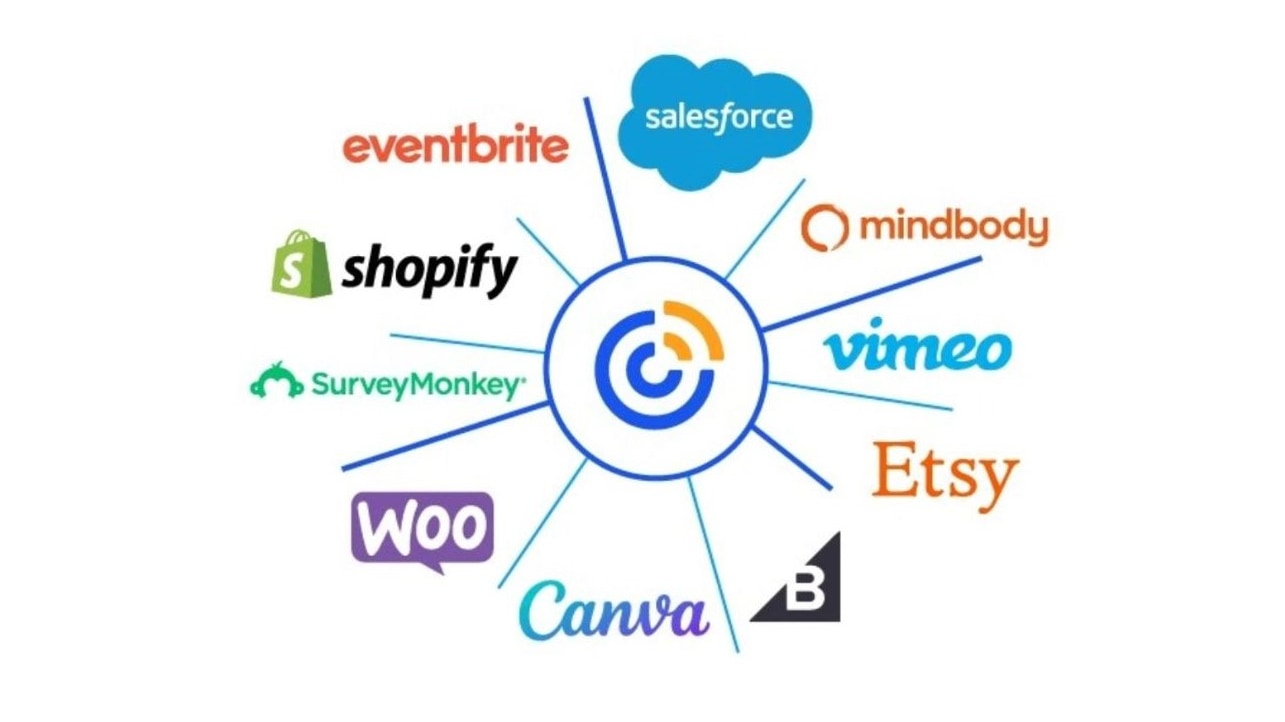
Constant Contact provides you with an extensive array of over 300 integrations with popular third-party tools and services. The platform seamlessly integrates with e-commerce platforms like Shopify, productivity tools like Google Workspace, and social media platforms like Facebook.
The integrations provided by Constant Contact empower you to streamline your workflows, synchronize your data effortlessly, and enhance your marketing capabilities.
Mailchimp, on the other hand, stands out with its vast ecosystem of over 250 integrations, catering to diverse business needs. From e-commerce platforms such as BigCommerce to CRMs like HubSpot, Mailchimp offers seamless connections that enrich data management and marketing efforts.
Additionally, Mailchimp integrates with popular tools like Zapier, allowing you to create custom connections with thousands of apps and services.
For a broader range of integrations, Constant Contact’s software is more suitable, although Mailchimp caters to specific needs of startups, allowing for more tailored and effective email campaigns.
Constant Contact and Mailchimp both Offer a Great Selection of Email Templates

Both Constant Contact and Mailchimp provide a wide variety of professionally designed email templates, offering you a great selection to choose from. All of these templates are designed to be visually appealing and responsive, ensuring they look good on different devices and screen sizes.
Constant Contact offers a gallery of customizable email templates across various industries and purposes. You can easily customize these templates to correspond with your brand, content, and images, making it a convenient solution to create visually appealing emails.
Mailchimp’s email template selection and design options are similar to those of Constant Contact. The platform also offers a diverse collection of customizable email templates although it does provide more advanced design capabilities and customization options, ideal if you require greater flexibility in your emails.
Mailchimp offers a template builder, allowing you to create custom email templates from scratch using a variety of design elements. The platform's email editor also provides more advanced design features, including the ability to modify HTML and CSS code for more personalized designs.
Ultimately, the choice between these two tools depends on your specific design needs and preferences, as well as the desired level of customization and design complexity.
Mailchimp Gives You More Options for Your A/B Testing

Mailchimp provides you with a broader range of options when it comes to your A/B testing. You can test various elements of your email campaigns, like:
- Subject lines
- Sender names
- Content variation
- Send times
The platform offers more flexibility in setting up and managing A/B tests, allowing you to experiment and optimize your email marketing strategies effectively.
Constant Contact, on the other hand, has more limited options for A/B testing. It provides basic capabilities, such as testing subject lines, although it does not offer the same level of granularity and advanced testing options as Mailchimp.
If you prioritize comprehensive A/B testing and want more flexibility to experiment with different email campaign elements, Mailchimp may be a better choice for you.
Mailchimp Provides More Extensive Reporting Insights

When it comes to reporting insights, Mailchimp offers most robust analytics into email campaign performance.
With Mailchimp, you have detailed metrics on important factors like:
- Email open rates
- Click-through rates
- Bounce rates
- Unsubscribe rates
- User behavior
- Engagement levels
Mailchimp’s reporting feature also includes advanced tools such as click maps to see where subscribers are clicking within an email, and e-commerce reports to track revenue generated from your campaigns.
Regarding Constant Contact, the platform provides essential reporting metrics, such as open rates, click-through rates, bounce rates, and unsubscribe rates, although these reports are not as in-depth as those of Mailchimp.
Although the choice of tool depends on your specific needs and requirements, Mailchimp is known to be more advanced when it comes to reporting features and deeper analytical insights into email campaign performances. Constant Contact’s features are perceived as less extensive, however, more suitable for less advanced users.
Constant Contact Keeps Your List Management Simple

Both Constant Contact and Mailchimp provide an intuitive interface for you to manage your lists and contacts with key information (email address, name, phone number, etc.). The two software also provide segments and tags to specifically target your audience.
However, Constant Contact tends to be more simple and intuitive to use when organizing contact lists. Constant Contact provides straightforward options for you to import, organize and segment your contacts for effective and targeted campaigns.
Once you have added your user to your list, you can determine who receives which of your campaigns quickly and easily. Additionally, you have access to convenient features to manage unsubscribes and bounces to ensure an up-to-date list.
When it comes to Mailchimp, you can still add contacts to your list, however, your segmentation choices and custom fields may require more time to set up and manage, with some beginner users finding the functionalities difficult to navigate.
Constant Contact’s more basic interface makes it less overwhelming for new users who are only beginning to use email automation software.
Subscribe to our newsletters.
No FOMO here. Stay up-to-date on all the latest deals and news with our monthly newsletter straight to your inbox like 113,000+ entrepreneurs (+ Get 10% off on on our Premium Membership!)
Constant Contact vs Mailchimp: Which is the best for your business?
Constant Contact is the best tool for you if:
- You value simplicity and ease of use in managing your email campaigns
- You prefer a platform that offers a wide variety of professionally designed email templates and customization options without the need for extensive skills
- You prioritize email deliverability and want a high success rate in reaching your audiences’ inboxes
- You need robust listing management features to organize your contacts effectively
- You appreciate strong customer support and resources to assist you in your email marketing efforts
Mailchimp is the best tool for you if:
- You’re a small business owner or entrepreneur looking for a cost-effective solution for your email marketing efforts
- You seek a comprehensive email marketing platform with advanced automation and segmentation capabilities for those with more advanced skills
- You want more flexibility in A/B testing and detailed insights into campaign performance
- You prefer a platform that offers additional marketing tools, such as landing page creation and social media integration
- You’re looking for a platform that provides extensive reporting insights to track the success of your email campaigns
Alternatives to Constant Contact & Mailchimp
Promotions on Email Marketing software
Start saving on the best SaaS with Secret.
Secret has already helped tens of thousands of startups save millions on the best SaaS like Constant Contact, Mailchimp & many more. Join Secret now to buy software the smart way.









